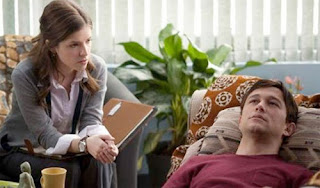Algernon is a mouse who, through a surgical procedure, has attained a much higher level of intelligence. Charlie, an adult with intellectual disabilities, agrees to be the first human subject of the experimental procedure. The procedure is highly successful, rapidly raising Charlie to super-genius status, but only for a time. He eventually loses his newfound intelligence and learning ability.
Flowers for Algernon is fiction, but in our world of rapidly developing medical and informational technology, imagining such a procedure is hardly fantasy. Sometimes it seems like more a question of when rather than if such things become possible. Given the possibility, if not inevitability, of such developments, how should we address the ethical questions that arise? If we can accomplish such enhancement of intelligence, does that mean we should? And if we do, what does that say about the value we place on people with intellectual disabilities?
Before the procedure, Dr. Strauss meets with Charlie to discuss what will happen as a result. "If this operation works, nobody will ever have to be like you were. None of these babies will have have to grow up and go through what you went through." Later, at the scientific conference where Dr. Strauss plans to present his results, he describes Charlie before the experiment. "He was outside of society. . . . He was alone . . . without mental equipment that would lead him to a normal life. He has . . . no hope for the future." He was "one of nature's mistakes, a mistake that . . . we have corrected."
Dr. Strauss and his team intended well. But where is the line that separates quality of life from no quality of life? Charlie had a job, as a helper at a bakery, where he felt accepted, even if bullied a little bit. He had his school, where he attended classes with other adults with disabilities. Most of all, he had his spirit; he cared for others and endeavored to give of himself. In response to Dr. Strauss's comments, Charlie said, "I am not aware of any contribution that Charlie Gordon made to society before his operation, but to describe him as a mistake is unfair. He would have given you his last crust of bread if you asked for it."
So at what point does a disability become something to be cured? Researchers have worked tirelessly to find cures for different kinds of cancer. The cure and prevention of diseases like polio have undoubtedly prevented many from becoming disabled. Technological developments are increasingly giving hearing to the deaf, sight to the blind, and the ability to walk to the paraplegic. But when we look at someone born blind, or with an intellectual disability, without the ability to walk, or some other disability, and say, "You are incomplete, you are not right, you are not normal," what are we really saying about them? When Dr. Strauss tells Charlie that his goal is that no one is born like Charlie, and that Charlie can't have a normal life, what is normal? What do we value?
As Charlie's IQ rose, his personality changed. He became less caring, less able to relate to people, and lost his friends and connections. Our abilities and disabilities are inextricably tied to our personalities. We are who we are, mind and body. Dr. Strauss personifies what some have called the "cult of normalcy," the belief that not only can disabilities be corrected, but that to the extent they can, they absolutely should be. It's a question worth pondering next time you interact with someone with a disability.




